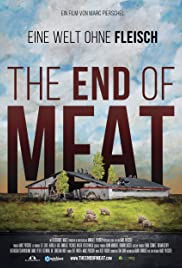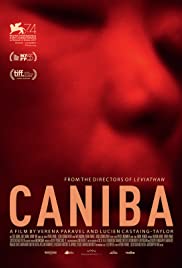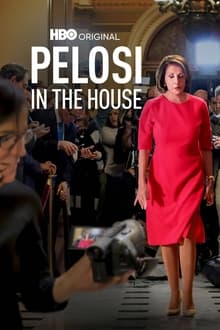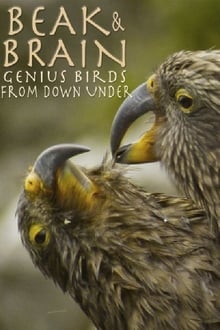
Not Available right now
You May Also Like

Not Available

Although evidence of meat consumption’s negative impact on the planet and on human health continue stacking up as animal welfare is on the decline, humanity’s love affair with hamburgers, steaks, nuggets and chops just doesn’t end. In The End of Meat, filmmaker Marc Pierschel embarks on a journey to discover what effect a post-meat world would have on the environment, the animals and ourselves. He meets Esther the Wonder Pig, who became an internet phenomenon; talks to pioneers leading the vegan movement in Germany; visits the first fully vegetarian city in India; witnesses rescued farm animals enjoying their newly found freedom; observes the future food innovators making meat and dairy without the animals, even harvesting “bacon” from the ocean and much more. The End of Meat reveals the hidden impact of meat consumption; explores the opportunities and benefits of a shift to a more compassionate diet; and raises critical questions about the future role of animals in our society.

More of a film essay – of the type pioneered by Orson Welles and Chris Marker – than a standard documentary, German filmmaker Lutz Dammbeck’s The Net: The Unabomber, the LSD and the Internet begins with the typical format and structure of a nonfiction film, and a single subject (the life and times of mail bomber Ted Kaczynski). From that thematic springboard, Dammbeck branches out omnidirectionally, segueing into a series of thematic riffs and variants on such marginally-related subjects as: the history of cyberspace, terrorism, utopian ideals, LSD, the Central Intelligence Agency, and Cuckoo’s Nest author Ken Kesey and his Merry Pranksters.

Upon learning of her diagnosis, Marina begins to look for answers to her questions. Fearing public disclosure of the diagnosis and condemnation of others, Marina writes down all her thoughts in a diary. But once the secret becomes apparent…

Exploring how social media, smartphones, tablets and a range of platforms and devices have fundamentally changed the way we communicate and operate in the world. It’s time to reclaim our time and attention, and develop healthy relationships with the technology driving so much of the world.

Caniba is a fresco about flesh and desire. It reflects on the discomfiting significance of cannibalism in human existence through the prism of one Japanese man, Issei Sagawa, and his mysterious relationship with his brother, Jun Sagawa.

Documentarian Alexandra Pelosi offers a candid, behind-the-scenes chronicle of the life of her mother and Speaker of the United States House of Representatives, Nancy Pelosi, through her career milestones leading up to the inauguration of President Joseph Biden in January 2021.

Whoever came up with the term ‘bird brain’ never met these feathered thinkers, who use their claws and beaks to solve puzzles, make tools and more.

Georgia’s former prime minister has found a unique hobby. He collects century-old trees, some as tall as 15-story buildings, from communities along the Georgian coast. At a great expense and inconvenience, these ancient giants are uprooted from their lands to be transplanted in his private garden.

Ten women in Canada talk about being lesbian in the 1940s, 1950s, and 1960s: discovering the pulp fiction of the day about women in love, their own first affairs, the pain of breaking up, frequenting gay bars, facing police raids, men’s responses, and the etiquette of butch and femme roles. Interspersed among the interviews and archival footage are four dramatized chapters from a pulp novel, “Forbidden Love”.

The geographical dead center of North America and the beloved birthplace of Guy Maddin, Winnipeg, is the frosty and mysterious star of Maddin’s film. Fact, fantasy and memory are woven seamlessly together in this work, conjuring a city as delightful as it is fearsome.

A documentary on Kingsman: The Secret Service.